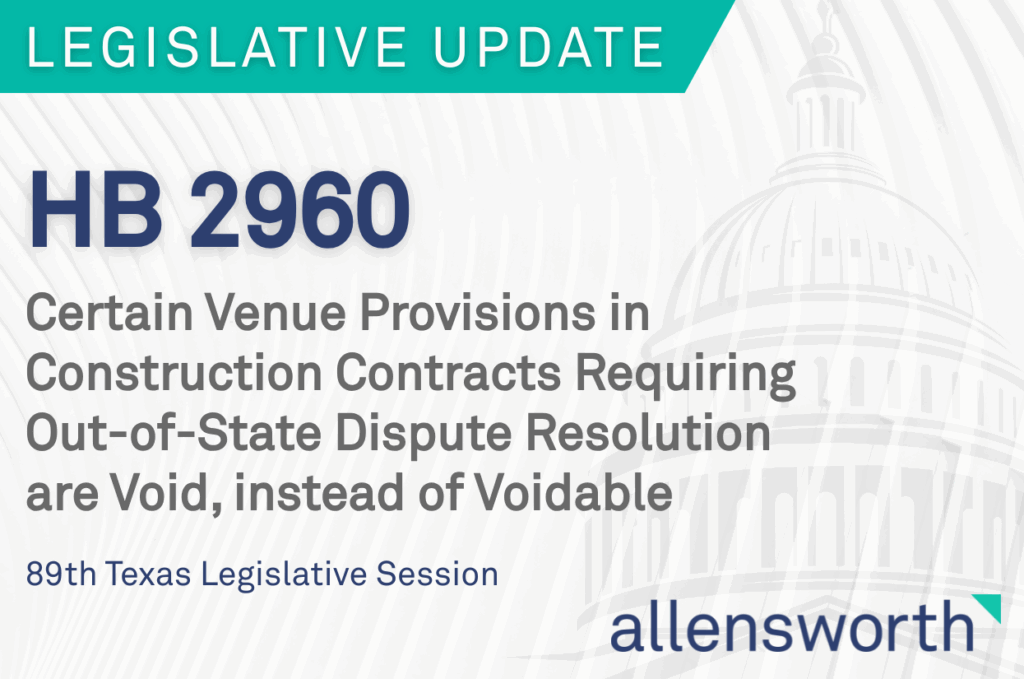
HB 2960 made void, rather than voidable, provisions in construction contracts that render the contract (or any conflict arising thereunder) subject to another state’s laws or litigation/arbitration in another state. In the event of a voided provision, venue is mandatory in the county and state where the property at issue is located.
HB 2960 amended Texas Business & Commerce Code Section 272.001, making void any provision in a “construction contract[1]” (or agreements collateral to or affecting such construction contracts) concerning public or private property in Texas that renders the contract or conflicts arising thereunder subject to another state’s laws, including litigation or arbitration in another state. And, unless the contractual parties stipulate to another venue after the dispute arises, any action arising out of the contract shall be brought only in the county and state in which the property at issue is located.
Prior to HB 2960, such provisions were only voidable under Section 272.001, meaning they were still enforceable unless a contractual party affirmatively disputed them. In addition, the bill’s author raised concerns created by a Texas appellate court decision holding that the rights afforded by Section 272.001 are waivable. See In re MVP Terminalling, LLC, No. 14-21-00399-CV, 2022 Tex. App. LEXIS 6182 (Tex. App.—Houston [14th Dist.] Aug. 23, 2022, no pet.). Now, any such provisions are automatically void, regardless of the parties’ intent or actions. This will further ensure that parties to applicable construction contracts are not forced to resolve legal disputes out of state and cut down on contract negotiations over those types of provisions.
This bill applies to construction contracts entered into or “renewed” on or after September 1, 2025. The bill does not provide additional guidance regarding the intended reach of contracts “renewed” on or after September 1, 2025. It follows that a Master Services Agreement, for example, entered into on September 1, 2024, under which a new purchase order is executed on September 1, 2025, may be subject to these amendments. Parties and their attorneys should pay close attention to how the inclusion of “renewed” in this legislation might affect whether applicable contract provisions are void or voidable.
[1] Under Texas Business & Commerce Code Section 272.0001, “construction contracts” are defined as “a contract, subcontract, or agreement entered into or made by an owner, architect, engineer, contractor, construction manager, subcontractor, supplier, or material or equipment lessor for the design, construction, alteration, renovation, remodeling, or repair of, or for the furnishing of material or equipment for, a building, structure, appurtenance, or other improvement to or on public or private real property, including moving, demolition, and excavation connected with the real property. The term includes an agreement to which an architect, engineer, or contractor and an owner’s lender are parties regarding an assignment of the construction contract or other modifications thereto.”